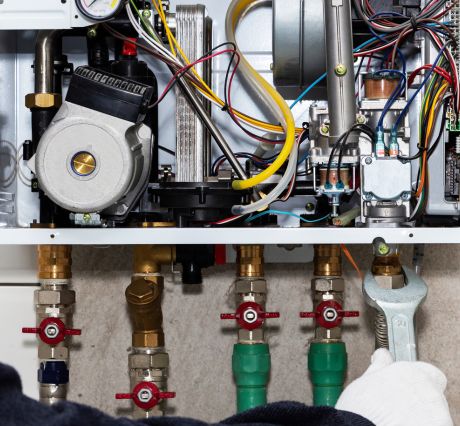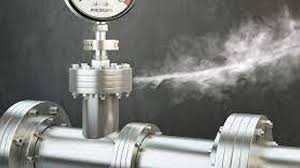10 Warning Signs You Need a Boiler Repair Service Immediately

A properly functioning boiler is crucial for maintaining a warm and comfortable home, especially during colder months. However, like any appliance, boilers can develop issues over time. Ignoring these problems can lead to costly repairs, safety hazards, and even complete system failure. To prevent such situations, it’s essential to recognize the warning signs early and call a professional boiler repair service when needed. Below are the 10 most critical warning signs that indicate your boiler needs immediate attention.
Unusual Noises Coming from the Boiler
If your boiler is making banging, whistling, or gurgling noises, this is a clear sign of trouble. These sounds can be caused by various issues, including air trapped in the system, limescale buildup, or a failing pump. Ignoring these noises can lead to further damage and inefficiency in your heating system.
Example:
A homeowner in London noticed a loud banging noise from their boiler. Upon inspection, a professional discovered a build-up of limescale in the heat exchanger, leading to overheating. A power flush solved the issue and restored the system’s efficiency.
Loss of Heat or Hot Water
A sudden lack of heat or hot water is one of the most obvious signs your boiler needs repair. This issue can be caused by a faulty thermostat, broken diaphragm, or airlocks in the system. If your heating system is struggling to maintain warmth, it’s time to seek professional help.
Leaking or Dripping Water
Boiler leaks are serious issues that should never be ignored. Leaks can be caused by a broken internal component, corrosion, or excessive boiler pressure. Water leaks can lead to mold growth, property damage, and decreased efficiency.
Safety Concern:
If you notice a water leak near electrical components, turn off the boiler and contact a repair service immediately to avoid electrical hazards.
Strange Smells Coming from the Boiler
If you detect a metallic or sulfur-like smell from your boiler, it could indicate a gas or carbon monoxide leak. Carbon monoxide is a silent killer, as it is colorless and odorless. Symptoms of carbon monoxide poisoning include dizziness, nausea, headaches, and fatigue. If you suspect a leak, turn off the gas supply, open windows, and call a professional immediately.
Preventative Measure:
Install a carbon monoxide detector near your boiler to ensure safety.
Frequent Boiler Shutdowns
If your boiler keeps turning off unexpectedly, there may be an issue with the thermostat, low water pressure, or a blocked heat exchanger. Frequent shutdowns can reduce efficiency and increase energy bills, so it’s best to address the issue as soon as possible.
Pilot Light or Flame Issues
A healthy boiler flame should be blue. If the flame turns yellow or orange, this is a sign of incomplete combustion, which can lead to carbon monoxide leaks. Additionally, if your pilot light keeps going out, there may be an issue with the thermocouple or gas supply.
Tip:
If your pilot light frequently goes out, avoid relighting it multiple times and call a technician for a thorough inspection.
Inconsistent Water Pressure
If your boiler’s water pressure fluctuates or drops too low, this may indicate a leak, faulty pressure relief valve, or trapped air in the system. Low water pressure can cause heating inefficiencies, resulting in higher energy costs and discomfort in your home.
Radiators Not Heating Properly
If your radiators remain cold or heat unevenly, this could mean your boiler isn’t distributing heat effectively. Common causes include sludge buildup, trapped air, or a faulty pump. Flushing the system or bleeding the radiators can often resolve the issue, but persistent problems require professional attention.
Example:
A homeowner in New York experienced uneven radiator heating. A technician found sludge buildup in the pipes, reducing heat circulation. After a power flush, the heating system was restored to optimal performance.
Higher Energy Bills
A sudden spike in your energy bills could indicate that your boiler is no longer running efficiently. When a boiler struggles to function, it consumes more energy to produce the same level of heat. If your bills are unusually high, scheduling a boiler inspection can help identify inefficiencies and reduce long-term costs.
Boiler is Over 10-15 Years Old
Boilers typically last 10-15 years. If your unit is within this range and experiencing frequent breakdowns, repairs may not be cost-effective in the long run. Upgrading to a modern, energy-efficient boiler can improve performance, lower energy bills, and enhance safety.
Fact:
Modern condensing boilers are up to 90% more efficient than older models, leading to significant savings on energy bills.
Conclusion
A malfunctioning boiler can cause discomfort, safety risks, and high repair costs if not addressed promptly. By recognizing the warning signs early, you can take action to ensure your heating system remains efficient and safe. Regular boiler maintenance and timely repairs not only extend the lifespan of your unit but also provide peace of mind. If you notice any of the warning signs mentioned above, contact a professional boiler repair service immediately to prevent further issues.
FAQs
How often should a boiler be serviced?
It’s recommended to have your boiler serviced annually to ensure it runs efficiently and safely.
Can I repair my boiler myself?
Boiler repairs should always be handled by a qualified professional to avoid safety risks and ensure compliance with regulations.
How much does a boiler repair cost?
The cost of boiler repairs varies, but minor repairs typically range from $100 to $500, while more serious issues can cost over $1,000.
What should I do if I suspect a gas leak?
If you smell gas near your boiler, turn off the gas supply, open windows, and call a gas-safe professional immediately.
When should I replace my boiler instead of repairing it?
If your boiler is over 10-15 years old and frequently breaks down, replacing it with a modern, energy-efficient model may be a more cost-effective solution.
By staying informed and proactive, you can ensure your boiler remains in top condition, providing reliable heat and hot water for years to come.
Note: IndiBlogHub features both user-submitted and editorial content. We do not verify third-party contributions. Read our Disclaimer and Privacy Policyfor details.



